The views expressed in our content reflect individual perspectives and do not represent the authoritative views of the Baha'i Faith.
I love peaches. Nothing tastes better, in my humble gustatory opinion, than a ripe, juicy peach. Right now I can feel my taste buds just salivating at the thought of that delicious nectar. Since the middle of winter has arrived, so I’m not likely to find any peaches anywhere nearby, sadly—but I do remember, with crystal clarity, one intensely wonderful peach I ate last summer.
You know how some peaches aren’t really ripe when you bite into them? Kind of hard and crunchy? And some—I can’t stand this!—have gone way past ripe? When that first bite gives you a mealy, not-very-appetizing texture and that flat, not-very-sweet taste? Yech.
Well, this peach I bit into last July was neither of those bad extremes—it tasted absolutely, divinely sublime. At the exact moment of its maximum ripeness, its sweet lusciousness made me joyously happy. Oh, how I savored that simple piece of fruit! Just the memory of it makes my taste buds tingle. I could write poetry about that perfect peach.
I think about that peach every time I think about my own soul, and wonder if it has ripened:
You perceive how the soul is the intermediary between the body and the spirit. In like manner is this tree [a small orange tree on a nearby table] the intermediary between the seed and the fruit. When the fruit of the tree appears and becomes ripe, then we know that the tree is perfect; if the tree bore no fruit it would be merely a useless growth, serving no purpose!
When a soul has in it the life of the spirit, then does it bring forth good fruit and become a Divine tree. …the cares of the lower things of life should not be allowed to monopolize all the thoughts and aspirations of a human being. The heart’s ambitions should ascend to a more glorious goal, mental activity should rise to higher levels! Men should hold in their souls the vision of celestial perfection, and there prepare a dwelling-place for the inexhaustible bounty of the Divine Spirit. – Abdu’l-Baha, Paris Talks, p. 98.
So, in light of that beautiful quote from a talk Abdu’l-Baha gave in Paris, I’m trying to bring forth good, ripe fruit and become a divine tree. Aren’t we all?
Each of us grows and matures through the stages of life—infancy, childhood, adolescence, adulthood—as we develop a set of goals, desires and aspirations. We try to understand our inner spiritual landscape, try to learn what makes us happiest, and then set our ambitions on getting to that point. But some of us set our sights too low, the Baha’i teachings say, allowing “the cares of the lower things of life” to monopolize all our thoughts and aspirations.
I have a friend, for example, who always wanted to own a particular brand of German luxury car. She envisioned herself driving one from the time she was a teenager, and when she married and had two children in her early thirties she finally got that expensive car she’d always wanted. She gave me a ride, both kids in their car seats in the back, and the smile on her face told the story—she had finally and proudly reached one of her most cherished goals in life.

But the next time I saw her, several months later, she had sold her favorite car. I asked her why. “I realized,” she said, “that I had to work incredibly hard to pay for it, and that all my hard work was actually taking time away from my children. I was working primarily to pay for a car, and to pay for my children’s daycare expenses while I worked. When I evaluated my priorities, I came to a conclusion—the car meant someone else was raising my kids, rather than me. I had everything backwards.”
She had given up her material goals for much more permanent spiritual ones, and that one decision, she told me, had made her happier than she’d ever been before.
When we reach the more mature stages of life, the Baha’i teachings say, our decisions and our priorities change. If we let them, our mental activity and the heart’s ambitions do “ascend to a more glorious goal,” as Abdu’l-Baha put it. With maturity, we exchange our old values—our vanities, material pursuits and concerns about self-image—for a more grounded, spiritually-oriented, and deeply satisfying set of new values. When we get to that point in our cycle of maturation, we realize that love is what lasts:
Love is the most great law that ruleth this mighty and heavenly cycle, the unique power that bindeth together the divers elements of this material world, the supreme magnetic force that directeth the movements of the spheres in the celestial realms. Love revealeth with unfailing and limitless power the mysteries latent in the universe. Love is the spirit of life unto the adorned body of mankind, the establisher of true civilization in this mortal world, and the shedder of imperishable glory upon every high-aiming race and nation. – Abdu’l-Baha, Selections from the Writings of Abdu’l-Baha, p. 27.
What does all this have to do with that juicy, delicious peach? I guess it all comes down to one realization—that only a fully-ripened, fruitful spiritual life can make us truly happy:
Happiness is the ambrosia of the spirit and the nectar of the souls. It confers on man the boon of immortality and the gift of spiritual vision. Happiness is the morning star guiding the wandering to the perennial abode of the blessed. Happiness is the crystalline river flowing from the heavenly mountains through the paradise of the mind and causing to grow upon its banks the imperishable ideals of humanity. Happiness is the cherubim of the Almighty which inspires mankind to perform feats of self-sacrifice and deeds of disinterested philanthropy. Happiness is the melodiously singing nightingale which transforms the darkened world of sorrow into the shining realm of celestial beatitude. Happiness is the surging ocean in the depths of which the diver finds the pearls of resignation and the corals of renunciation. Happiness is the elysium wherein grow the asphodels of good-will and the amaranths of forgiveness. Happiness is the heaven of God, the blue fields of which are studded with the bright rolling orbs of satisfaction and the fixed stars of contentment. Happiness is the scintillating crown of humanity the shining gems of which are the teachings of the past prophets and the principles of his holiness Baha’u’llah.
The happiness of man is not dependent upon outward things such as riches, ornaments and clothes. It is, however, dependent upon the susceptibilities of the heart and the attitude of the mind. – Abdu’l-Baha, Star of the West, Volume 7, p. 153.
Next: The Revolutionary Cycle of a New Revelation


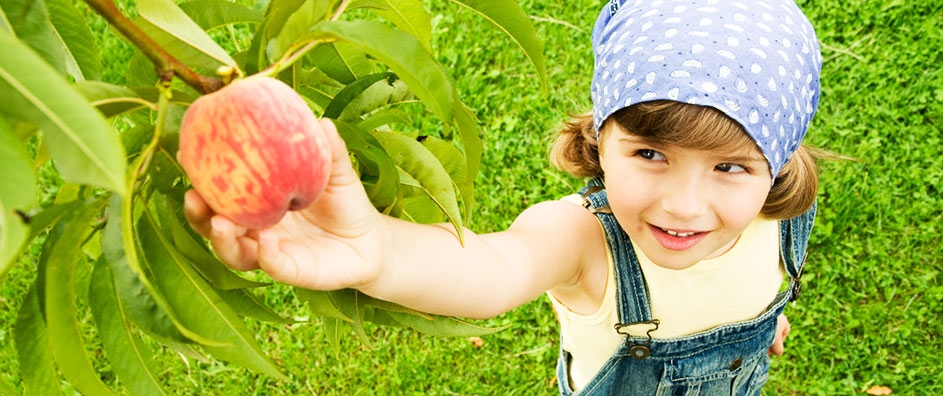




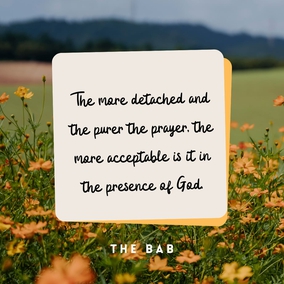
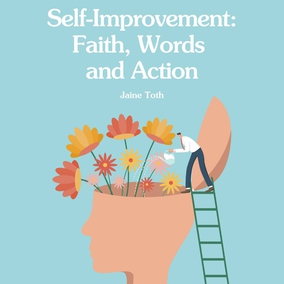


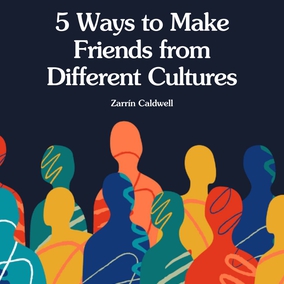
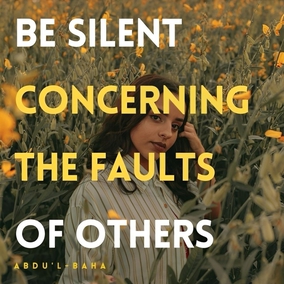



Comments
Sign in or create an account
Continue with Googleor